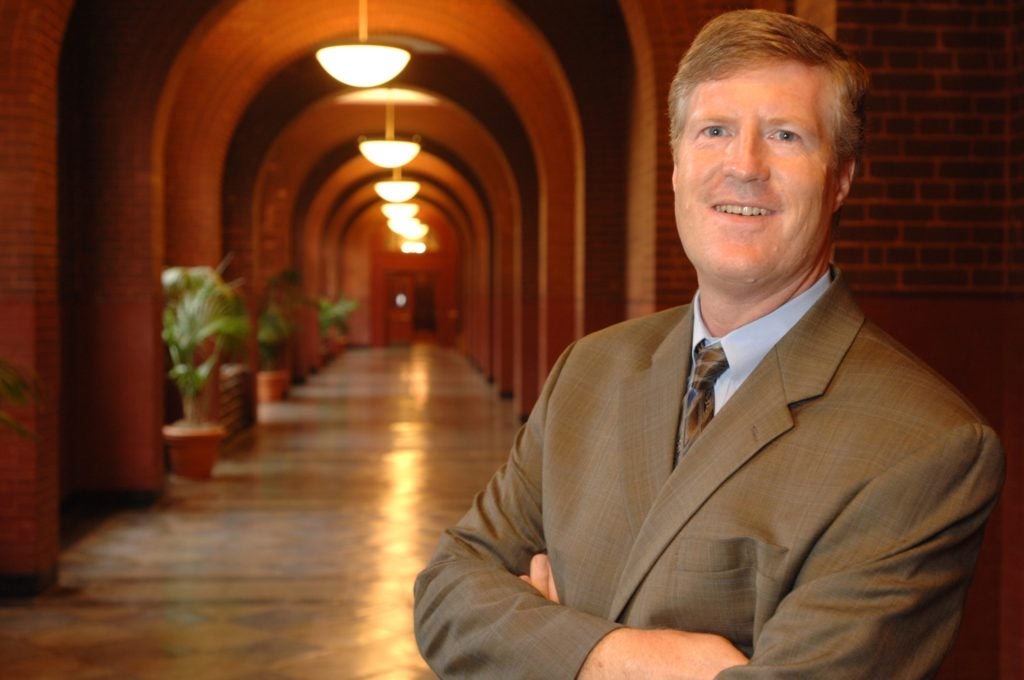John Mayo’s statement on the FCC’s draft order
Posted in Announcements News

CBPP executive director, John Mayo, issued the following in response to the November 21, 2017, Federal Communications Commission (FCC) draft order that would, if approved next month, reverse a 2015 decision to “reclassify” broadband internet service providers as common carriers, or public utilities, subject to stringent regulation by federal and state regulators:
In his proposed order undoing the ill-considered 2015 decision to transform broadband ISPs into public utilities, Federal Communications Commission Chairman Ajit Pai has undone a wrong that has led, even in its short life, to adverse legal and economic consequences.
We applaud Chairman Pai for his plan to return broadband services to the world of light-touch regulation, permission-less innovation, and unconstrained investment, where it had been since 1996, when a bi-partisan Congress first declared the policy of the United States was to leave the internet ‘unfettered by federal or state regulation.’
In an amicus brief filed in a still-ongoing case challenging the 2015 order, the Georgetown Center for Business and Public Policy noted that under the United States’ long-standing ‘light-touch’ policy, economic measures, of performance in the broadband industry—including price, output, innovation, and investment—improved dramatically, underscoring Congress’ foresight and wisdom in mandating ‘pro-competitive, de-regulatory’ treatment for broadband.
Prior to the 2015 order, private investors had spent over $1.5 trillion building a national broadband infrastructure that drove U.S. dominance in internet products and services. But as the record in today’s decision made abundantly clear, Wall Street had pulled back severely in the wake of reclassification, slowing investment dramatically just when U.S. digital infrastructure needed it most.
The 2015 decision to subject the Internet to Title II of the Communications Act, relocating it to the heavily regulated public-utility sector, was an unwarranted policy reversal. And the FCC effected this transformation without satisfying the basic requirement, compelled by both economic logic and the U.S. Supreme Court, to conduct an appropriate consideration of the costs and benefits of the impacts of the proposed regulatory change.
Our brief identified three fundamental economic flaws in the order, each of which has led to unintended but eminently foreseeable consequences in the form of decreased investment, regulatory uncertainty, and slowed innovation.
The draft order circulated today would correct all three of these flaws:
1.) The public utility order justified stringent regulation of broadband providers by relying on speculation about abstract future anticompetitive threats posed by continuing to regulate internet service provides lightly, as had been done successfully for 20 years.
2.) In 2015, the FCC ignored overwhelming empirical evidence showing that light-touch regulation had, as Congress intended, encouraged unprecedented investment in broadband infrastructure. At the same time, the likely benefits from additional regulatory controls were inflated and their unintended costs ignored.
3.) In 2015, the FCC’s decision recklessly dismissed evidence of the very real threat to investment, innovation and output that was likely to and did result from the imposition of public utility regulation. The public utility order failed not only to weigh the costs of its anachronistic common carrier regime against few if any likely benefits, but also to apply economic rigor to its evaluation of the record.
We salute Chairman Pai for quick action to reverse what has proven to be a harmful and unjustified change in its long-standing successful policy, which if not reversed, threatens the continued growth, productivity, and expansion of critical digital industries and next generation broadband infrastructure.
